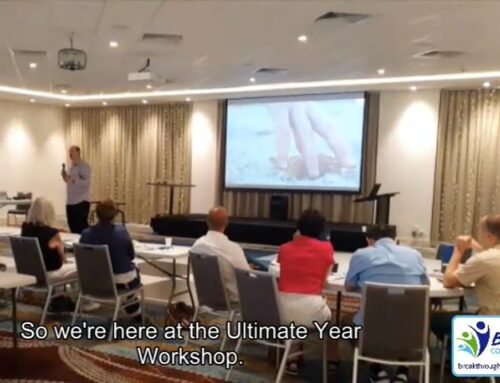Imagine ending each day with clarity—a clear understanding of your achievements, areas of improvement, and actionable insights for tomorrow. What would that clarity do for your life, your career, and your personal fulfilment?
In my 15 years of executive coaching and over 15,000 hours spent guiding professionals, I’ve seen repeatedly how clarity isn’t just powerful—it’s transformational. Before we dive into your personal clarity toolkit, let’s first explore the professional practices that inspired it.
The Proven Power of After-Action Reviews
The concept of structured reflection originated in the 1970s with the U.S. Army’s After-Action Review (AAR). Harvard Business Review highlights that “in the decades since the Army created the AAR, businesses have embraced the practice as a way of learning from both failure and success.”
The process is deceptively simple, typically centred around four core questions:
- What did we intend to accomplish? (Goals)
- What actually happened? (Execution)
- Why did it happen that way? (Causes)
- What will we do next time? (Adjustments)
The impact is profound. Studies compiled by Harvard, Wharton, and McKinsey show structured debriefing processes like AARs can boost team performance by up to 25%. Companies like Google, Amazon, and Bridgewater Associates utilise variations of this model to continuously improve their outcomes, foster transparency, and reinforce learning cultures.
What makes these reflective practices so powerful professionally is their simplicity and directness. Teams cut through complexity by regularly asking focused questions. Clarity emerges from reflection—and clarity creates actionable insights.
Why Personal Clarity Matters Even More Than Self-Care
But clarity isn’t only transformative for teams and corporations; it’s equally essential in your personal life. Harvard Business Review emphasises that clarity significantly contributes to personal resilience, decision-making capabilities, and overall life fulfilment. While self-care is valuable, clarity goes deeper, aligning your daily actions with your core values and goals.
Think about this: clarity is your internal compass, guiding your decisions and actions. It helps you stay aligned with your purpose and remain resilient in the face of setbacks. Studies confirm that individuals who cultivate clarity are better at managing stress, rebounding from challenges, and experiencing genuine fulfilment in their careers and personal lives.
The 4 Questions for Daily Personal Clarity
Drawing from the professional practice of structured reflection, I’ve developed a simple, yet profoundly impactful daily ritual: The 4 Questions for Daily Personal Clarity. Here’s how you can use them to transform your everyday life:
- What Went Well Today?
Celebrate your wins, big or small. Acknowledging your accomplishments boosts confidence and reinforces the behaviours that align with your goals. This practice builds resilience, allowing you to see progress clearly, even on challenging days.
- What Didn’t Go as Planned, and Why?
Clarity demands honesty. Reflect on moments that didn’t meet your expectations. Understand the reasons behind them—was it procrastination, external obstacles, or misaligned priorities? This clarity helps you learn from mistakes rather than repeating them.
- What Have I Learned About Myself Today?
Every day offers insights into your character, strengths, limitations, and triggers. Reflecting on personal insights cultivates self-awareness, which research repeatedly highlights as crucial to effective leadership, emotional intelligence, and life satisfaction.
- What Will I Do Differently Tomorrow?
Turn today’s insights into tomorrow’s actionable steps. Clarity without action is incomplete. Clearly defining adjustments sets you up for intentional growth and positions you proactively, rather than reactively, for ongoing success.
Daily Action Plan for Clarity
Here’s how to practically incorporate these questions into your daily routine:
- Time: Set aside 5-10 minutes each evening. Consistency is more critical than duration.
- Environment: Find a quiet space free from distractions.
- Process: Write down your answers. The act of writing reinforces clarity and commitment.
- Review: Regularly revisit your reflections weekly or monthly to track patterns and measure growth.
The 4 Daily Questions for Personal Clarity aren’t merely a self-help exercise—they’re a proven methodology adapted from successful organisational practices. By making structured reflection part of your personal routine, you empower yourself with clarity, enhance your resilience, and drive genuine fulfilment.
If you or your team are ready to go deeper with clarity—whether through leadership coaching, team development, or personal effectiveness—our workshops are designed to support that journey.
📞 Call us at +61 481 307 778
📧 Email us at of****@*******************************om.au
Start building a culture—personally or professionally—where clarity drives lasting growth.
#PersonalClarity #DailyReflection #LeadershipDevelopment #SelfAwareness #GrowthMindset #ResilientLeadership #CoachingTools #ScottEpp #BreakthroughCorporateTraining #ClarityIsCatalyst







